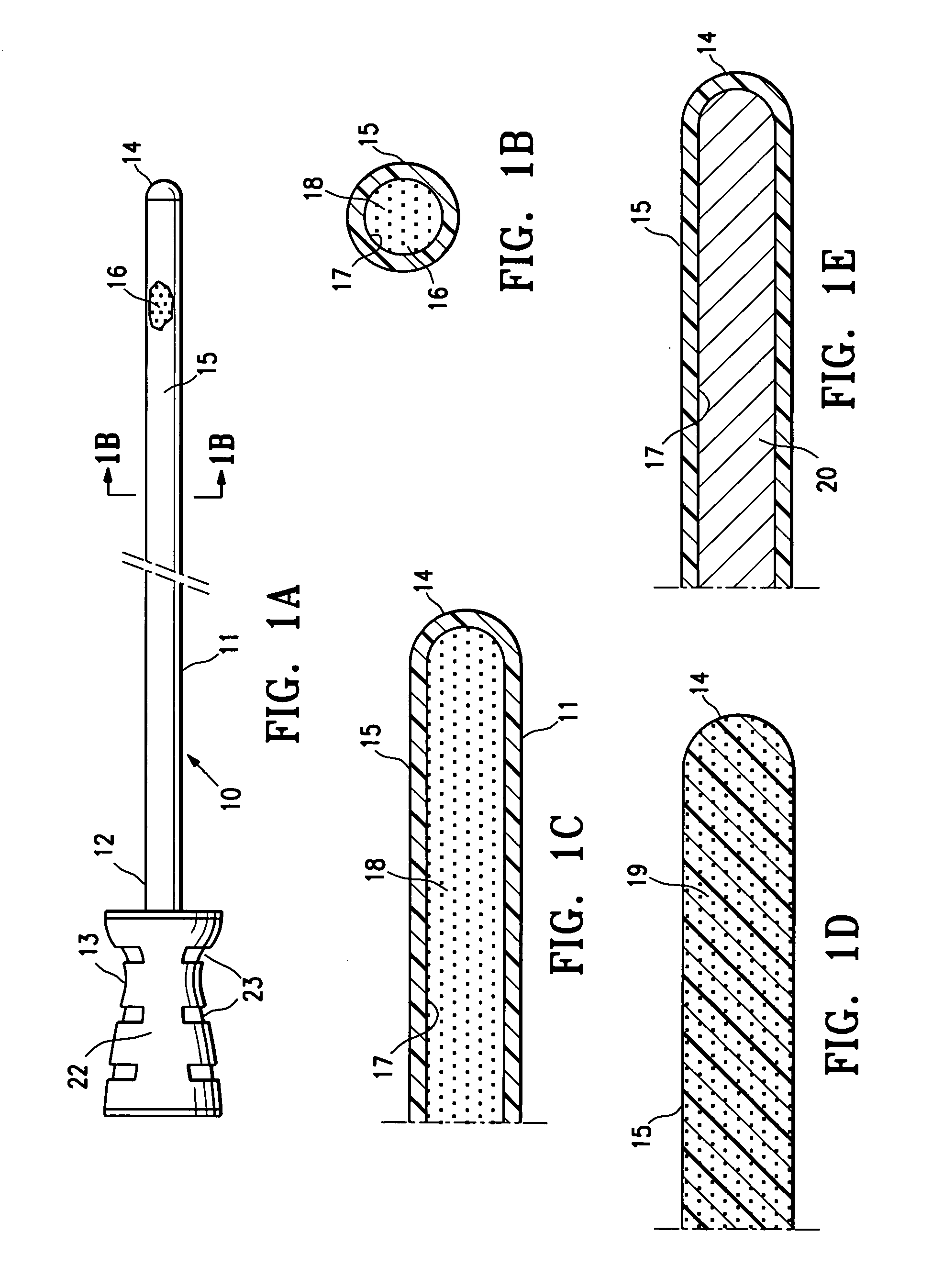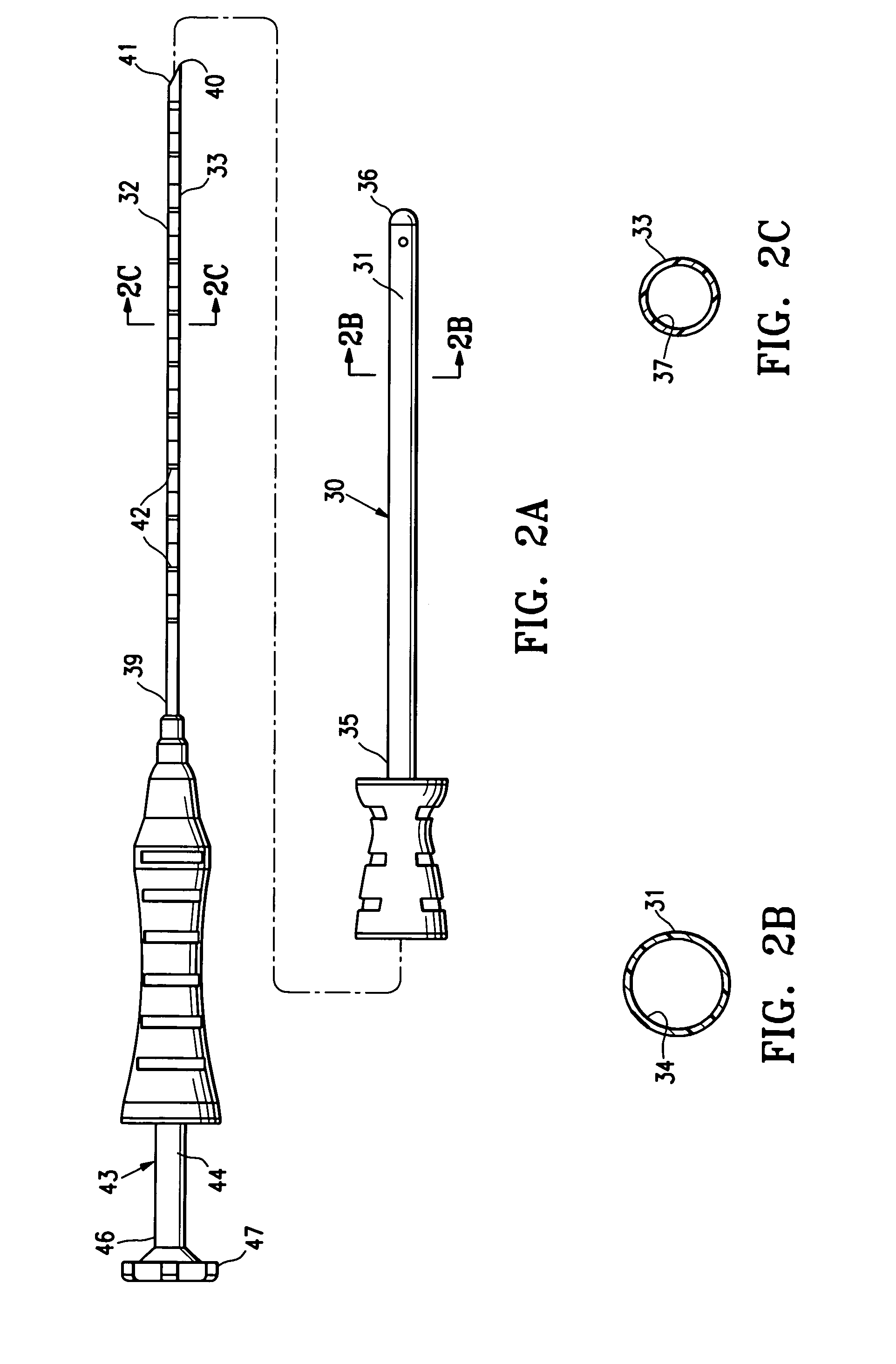MRI detectable obturator
a detection device and obturator technology, applied in the field of medical treatment devices and methods, can solve problems such as blood clotting risk, and achieve the effect of preventing or minimizing the backflow of body fluids, preventing or minimizing entry of body fluids
- Summary
- Abstract
- Description
- Claims
- Application Information
AI Technical Summary
Benefits of technology
Problems solved by technology
Method used
Image
Examples
Embodiment Construction
[0027]The present invention is directed to devices and methods for marking an intracorporeal site within a patient's body, and particularly to an obturator having an MRI detectable mass in the distal shaft portion thereof for marking the intracorporeal site.
[0028]FIGS. 1A-C illustrate an embodiment of an obturator 10 having an elongated shaft 11, a proximal end 12, a handle 13 on the proximal end, a closed distal end 14 and a distal shaft portion 15 with an MRI detectable mass 16. The MRI detectable mass may be in a solid, semi-solid, e.g. a gel or a slurry, or liquid state. Non-flowable gels are presently preferred. As shown in FIGS. 1B and 1C, the distal shaft portion 15 has an inner lumen 17 that is filled with a gel 18 having an MRI detectable material incorporated therein. An alternative embodiment is shown in FIG. 1D wherein the distal shaft portion 16 is solid 19 and has an MRI detectable material incorporated therein. FIG. 1E depicts yet another alternative embodiment in whi...
PUM
 Login to View More
Login to View More Abstract
Description
Claims
Application Information
 Login to View More
Login to View More - R&D
- Intellectual Property
- Life Sciences
- Materials
- Tech Scout
- Unparalleled Data Quality
- Higher Quality Content
- 60% Fewer Hallucinations
Browse by: Latest US Patents, China's latest patents, Technical Efficacy Thesaurus, Application Domain, Technology Topic, Popular Technical Reports.
© 2025 PatSnap. All rights reserved.Legal|Privacy policy|Modern Slavery Act Transparency Statement|Sitemap|About US| Contact US: help@patsnap.com



